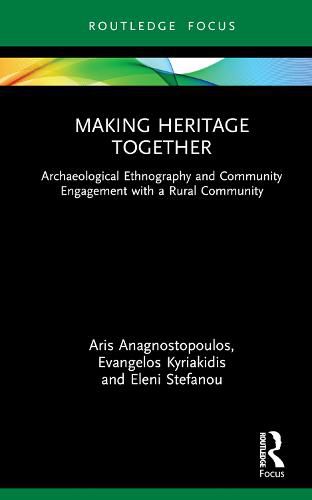Readings Newsletter
Become a Readings Member to make your shopping experience even easier.
Sign in or sign up for free!
You’re not far away from qualifying for FREE standard shipping within Australia
You’ve qualified for FREE standard shipping within Australia
The cart is loading…






This book presents the theoretical and local contexts for the project, explains the methodology and the project outcomes, and reviews in detail some of the public archaeology actions with the community as examples of collaborative, research-based heritage management. What the authors emphasize in this book is the value of local context in designing and implementing public archaeology projects, and the necessity of establishing methods to understand, collaborate and interact with culturally specific groups and publics. They argue for the implementation of archaeological ethnographic research as a method of creating instances and spaces for collaborative knowledge production. The volume contributes to a greater understanding of how rural communities can be successfully engaged in the management of their own heritage.
It will be relevant to archaeologists and other heritage professionals who aim to maximise the inclusivity and impact of small projects with minimal resources and achieve sustainable processes of collaboration with local stakeholders.
$9.00 standard shipping within Australia
FREE standard shipping within Australia for orders over $100.00
Express & International shipping calculated at checkout
This book presents the theoretical and local contexts for the project, explains the methodology and the project outcomes, and reviews in detail some of the public archaeology actions with the community as examples of collaborative, research-based heritage management. What the authors emphasize in this book is the value of local context in designing and implementing public archaeology projects, and the necessity of establishing methods to understand, collaborate and interact with culturally specific groups and publics. They argue for the implementation of archaeological ethnographic research as a method of creating instances and spaces for collaborative knowledge production. The volume contributes to a greater understanding of how rural communities can be successfully engaged in the management of their own heritage.
It will be relevant to archaeologists and other heritage professionals who aim to maximise the inclusivity and impact of small projects with minimal resources and achieve sustainable processes of collaboration with local stakeholders.